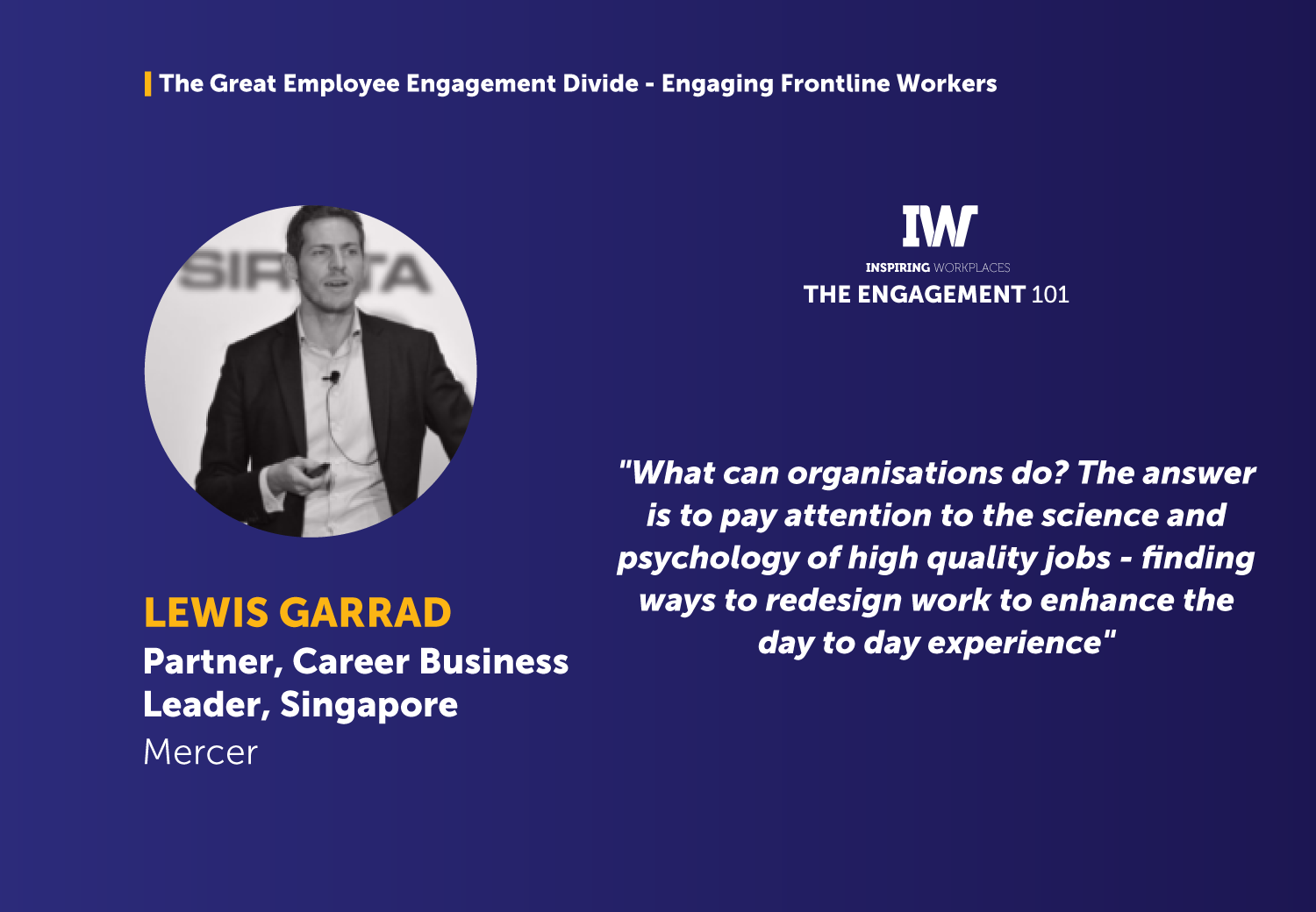
08th November 2021
The Great Employee Engagement Divide – Engaging Frontline Workers – Lewis Garrad

This snippet is part of our Ebook The great Employee Engagement Divide – Engaging Frontline Workers. Advice and suggestions from our Top 101 influencers. You can download the full eBook with all the advice here.
Lewis Garrad, Partner, People Science & Employee, Experience Solutions, Mercer
The Covid-19 has highlighted a significant variation in the overall “quality” of jobs that organisations create for their people. For knowledge and information workers, the shift to more remote working has improved the overall quality of work-life they experience; they have more flexibility, better tools (due to enhanced investments in digital transformation), more attentive bosses and greater opportunities for connecting their skills to interesting work.
For other types of work, the pandemic has highlighted a lack of attention to effective job and work design. Employees in work that requires them to “show-up” in person find themselves with even less freedom than before, and often facing greater uncertainty about the sustainability of their work. Efforts to drive productivity and efficiency from “essential” workers have ignored the science of good job design, creating work that people find uninspiring and dull. It is perhaps unsurprising that this sort of work rarely encourages people to suggest ways to make it better.
What can organisations do? The answer is to pay attention to the science and psychology of high quality jobs – finding ways to redesign work to enhance the day to day experience. If people are unable to invest their energy in something to master, if they do not feel they can grow to be autonomous and independent in their work, and if they feel they do not matter to the community of people they work with, then they will not be engaged.

